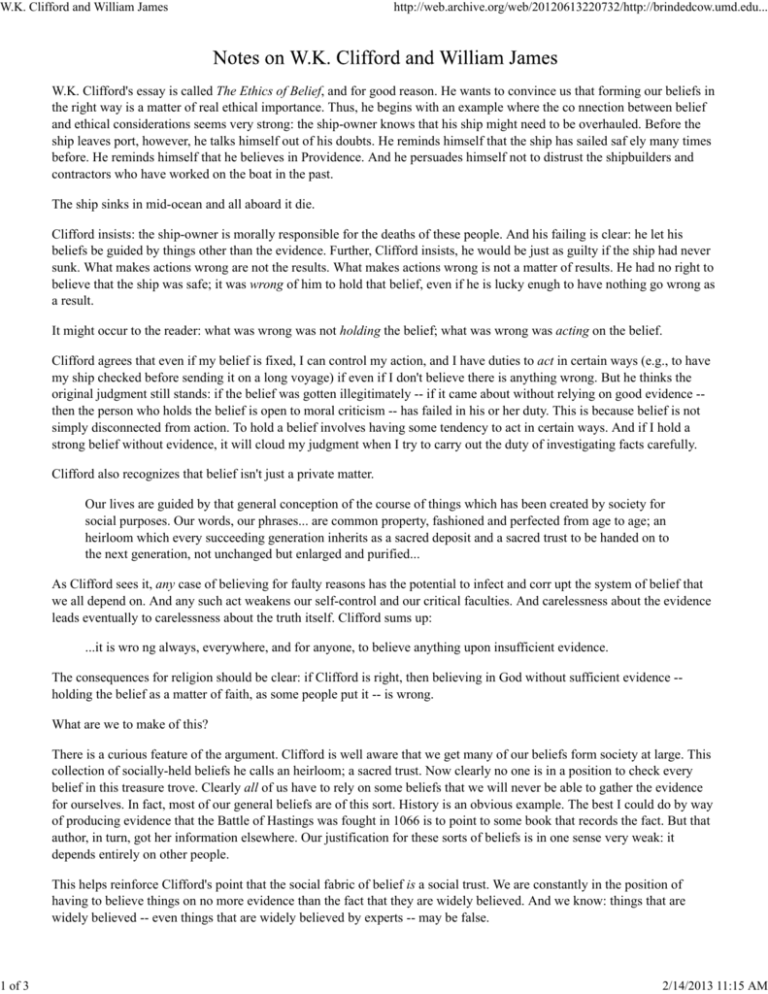

In turn, Clifford's ethical and epistemic outline can inform a framework grounded in “public reason” under which seemingly opposed science communication strategies (e.g., “information deficit” and “cultural cognition” models) are philosophically united. Although scientific and epistemological matters are not always thought to be linked to normative morality, this study builds on Clifford's initial insights to show their linkage is fundamental to inquiry itself. From the confirmation offered by such research, it follows that informational accuracy holds serious ethical significance in public discourse.


This study argues that recent cognitive research supports Cliffordian insights regarding patterns of belief formation and social influence. Clifford argues that we are morally responsible for our beliefs because (a) each belief that we form creates the cognitive circumstances for related beliefs to follow, and (b) we inevitably influence each other through those beliefs. The title “ethics of belief” comes from a 19th-century paper written by British philosopher and mathematician W.K. The relationship between knowledge, belief, and ethics is an inaugural theme in philosophy more recently, under the title “ethics of belief” philosophers have worked to develop the appropriate methodology for studying the nexus of epistemology, ethics, and psychology.


 0 kommentar(er)
0 kommentar(er)
